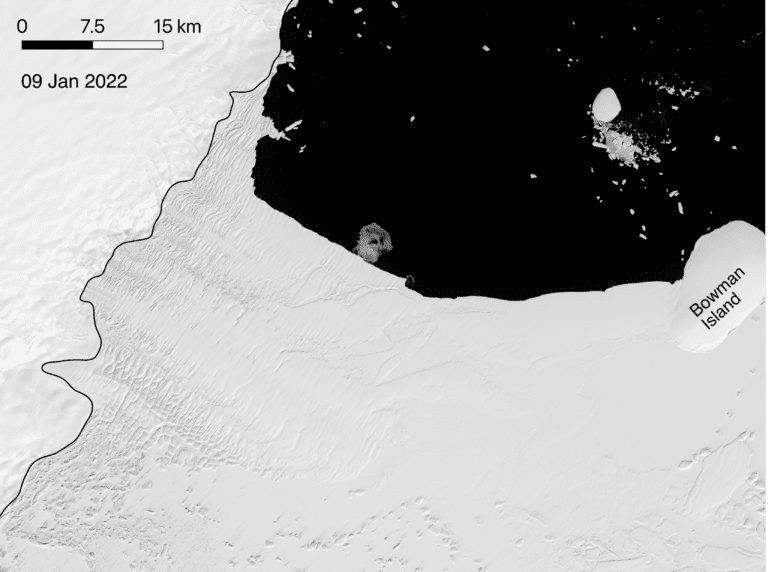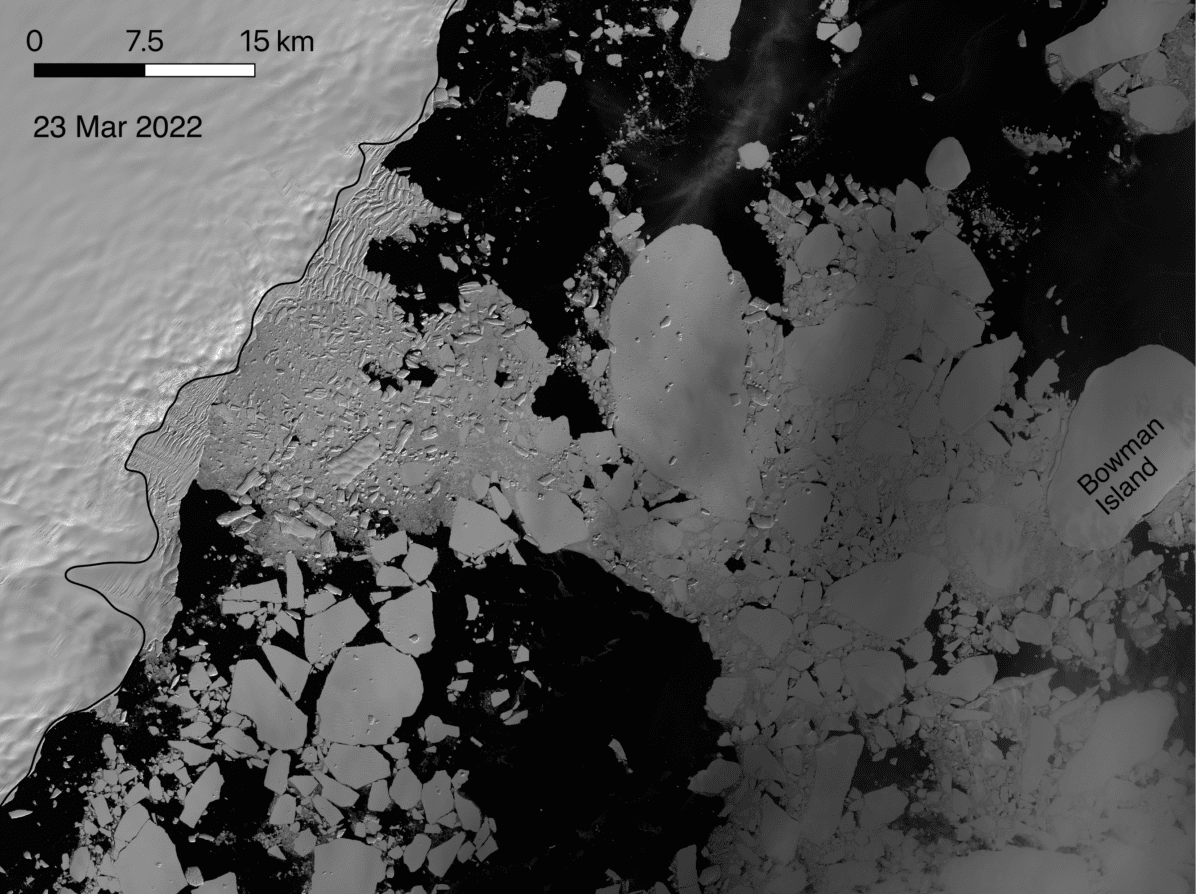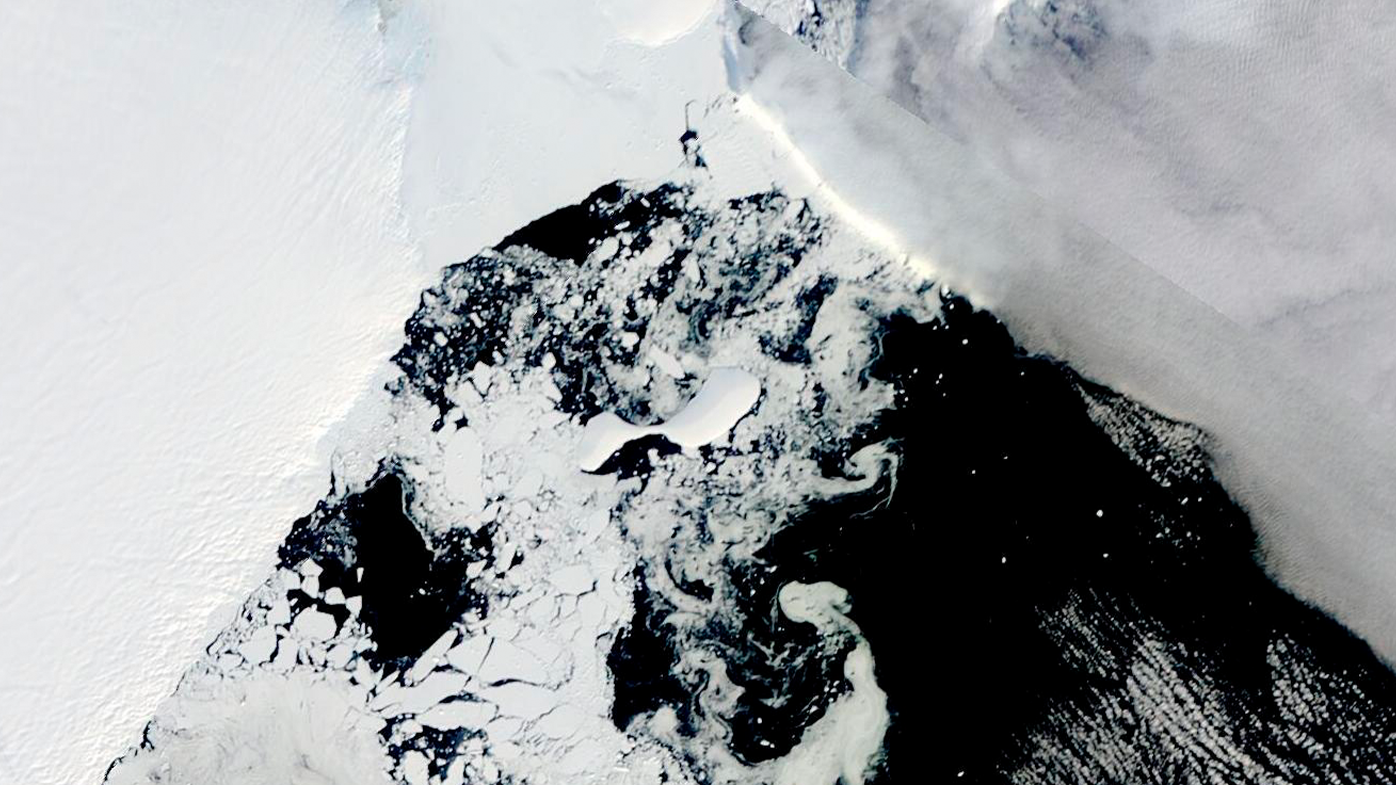An ice shelf about the size of Rome in East Antarctica has completely collapsed amid record breaking temperatures.
Scientists confirmed the Conger ice shelf, which had an approximate surface area of 1200 square kilometres, collapsed suddenly around March 15.
A compilation of Landsat and Modis satellite vision shows the massive ice shelf fragmenting, in what is being described as an "unpredictable collapse".
READ MORE: 'Dangerous flash flooding' warning as rain bomb unleashes
https://twitter.com/CapComCatWalk/status/1507137389432434739The collapse has shocked scientists, as East Antarctica is one of the highest, coldest and driest places in the world.
However, temperatures have soared over recent weeks.
The nearby Concordia station recorded a record temperature of -11.8C on March 18 — more than 40C warmer than seasonal norms.
READ MORE: Putin's dramatic 'North Korea' plan for Ukraine


Dr Catherine Colello Walker, an earth and planetary scientist at NASA and the Woods Hole Oceanographic Institution said the collapse could herald further ice loss in the frozen continent.
"Although the Conger ice shelf was relatively small, it is one of the most significant collapse events anywhere in Antarctica since the early 2000s when the Larsen B ice shelf disintegrated," Dr Walker said.
"It is most likely, a sign of what might be coming."
Why ice shelves are crucial to frozen continent
Ice shelves act like "corks" the Woods Hole Oceanographic Institution explained in the a statement.
"(They're) holding back the rest of the Antarctic Ice Sheet from flowing into the ocean," it said.
"They ring the continent's coast and serve as buttresses, as a buffer between the (warming) ocean and the massive interior ice sheet.
"This is the first time an ice shelf collapse has ever occurred, observable to humans, in East Antarctica, and it was completely unpredicted."
The Woods Hole Oceanographic Institution said the loss of East Antarctica could raise sea levels by five times more than West Antarctica.
READ MORE: Shanghai to lock down millions of people

"If the entirety of East Antarctica slid into the ocean, for example, it would raise sea levels globally by ~160 feet," it said.
"That won't happen for centuries, but it's processes like this one that will eventually allow that to happen".
The Conger ice shelf collapse comes amid predictions the tongue of the Thwaites glacier in West Antarctica could shatter within the next three to five years.
The Thwaites glacier, which equals the size of Florida or Great Britain, is known as the "Doomsday glacier," as its demise could lead to irreversible changes throughout the planet.
